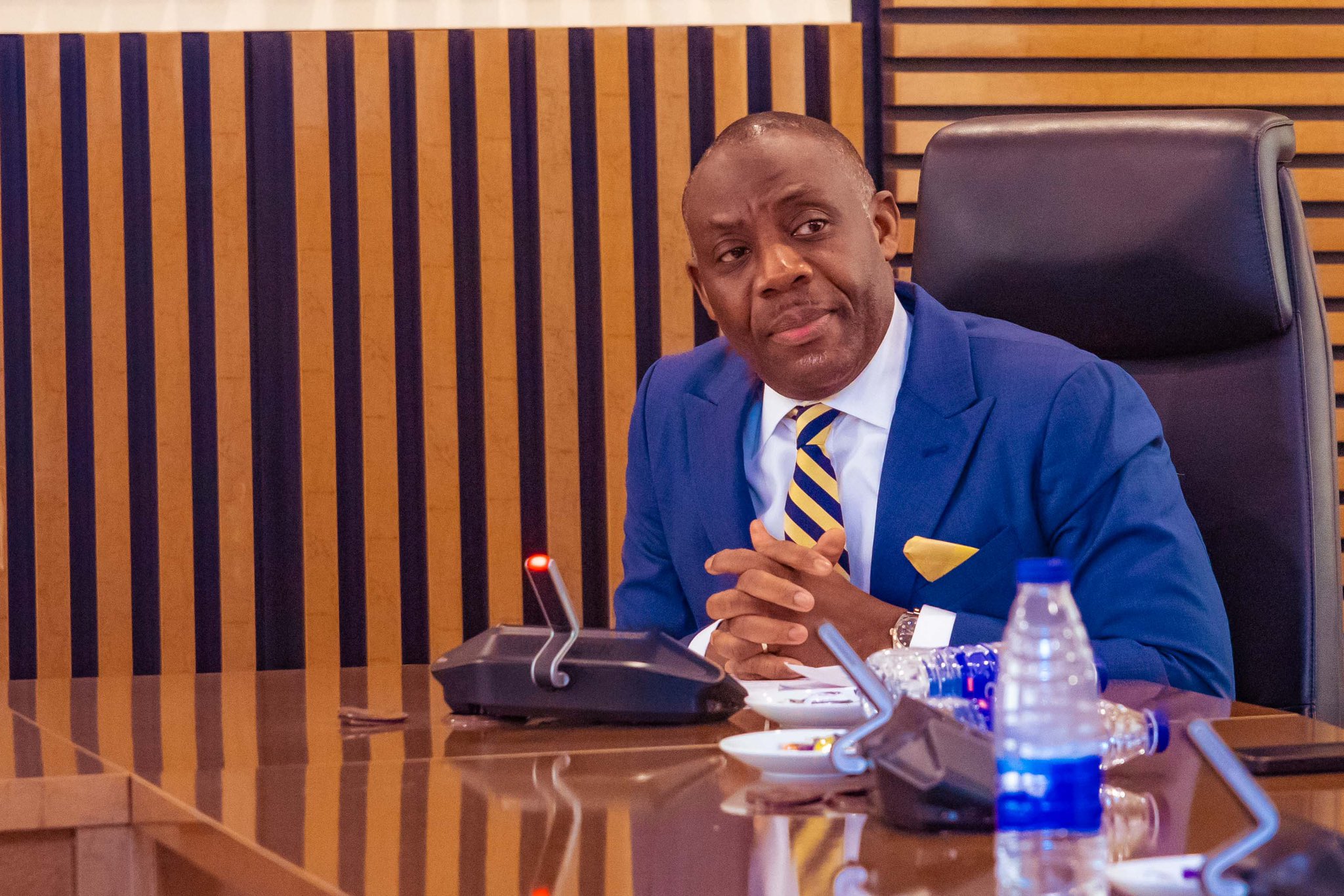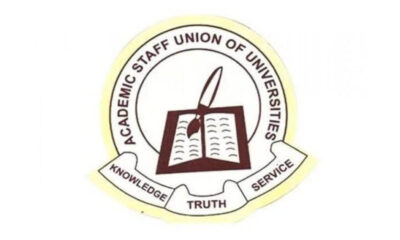Education
ASUU: FG may pay CONUA members salary arrears, demands lecturers’ details

The Federal Government may soon pay some university lecturers the eight-month salary arrears owed them for the period the Academic Staff of the Universities (ASUU) went on a nationwide strike over welfare package and poor university infrastructure.
This indication emerged as the Federal Government, through the Office of the Accountant General of the Federation, has requested the details of members of the Congress of University Academics for payment of withheld salaries.
CONUA, which had pulled out of ASUU, claimed its members were not part of the industrial action, and threatened to sue the FG for withholding the salaries of its members.
The Punch in a report on Sunday quoted an FG circular dated January 13 as a response to a letter by CONUA that the union should send details of its members to the AGF office, apparently to guide the government in preparing the salary arrears.
The letter, signed on behalf of the AGF by the Director, Integrated Payroll and Personnel Information System, Charles Wali, addressed to the CONUA President, Dr Niyi Sunmonu, stated, “I am directed to acknowledge receipt of your letter on the above subject matter dated November 2, 2022 in respect of payment of your withheld backlog of salaries and to request you to provide soft copy of membership of CONUA across universities to enable payment as requested.
“Meanwhile, you may wish to forward the following details to facilitate seamless deduction and remittance of check-off dues: Evidence of registration; official account details of the union; membership list of the union, signed by each member; percentage of deduction (check-off dues)/amount to be deducted from each member; mode of remittance between the headquarters and local chapters.”
It also said the details should include individual IPPIS numbers for ease of identification.
The PUNCH reports that upon the suspension of ASUU’s eight-month strike, the FG had paid the lecturers on pro-rata basis, as the Minister of Labour and Employment, Dr Chris Ngige, maintained that the government could not pay for a job not done.
The action had angered ASUU and its members across the universities protested against it, with a vow to consider “appropriate options” to fight it.
Education
12-year-old Nigerian girl Eniola Shokunbi invents air filter to reduce spread of diseases in US schools

12-year-old Nigerian girl Eniola Shokunbi invents air filter to reduce spread of diseases in US schools
A 12-year-old Nigerian from Connecticut, USA, Eniola Shokunbi, has designed an air filter to reduce spread of air borne diseases in the US schools.
The design aims at creating low-cost air filters for classrooms.
The Connecticut State Bond Commission has approved $11.5 million in funding for the design.
Eniola in her fifth grade at Commodore MacDonough STEM Academy of Middletown, they were tasked with creating a solution to enhance safety in schools during potential future pandemics.
Therefore, to combat airborne viruses like COVID-19, she developed a simple but effective air filter system.
Design
Shokunbi’s air filter design showcases both innovation and cost-effectiveness. The unit is constructed using a simple combination of components: a box fan, four furnace filters, duct tape, and cardboard.
READ ALSO:
- Gunmen kill two soldiers in Abia checkpoint attack
- 94 arrested as task force raids Lagos rail corridor squatters
- Two dead, buildings destroyed in American factory explosion
This ingenious assembly results in a remarkably low production cost of approximately $60 per unit. This makes it a highly affordable alternative to commercial air purifiers.
Eniola Shokunbi said, “The air goes through all the sides, and it comes out of the top. So it filters in and out.”
With support from scientists at the University of Connecticut, UConn, Eniola’s design underwent rigorous testing.
The Environmental Protection Agency, EPA, confirmed that the device effectively eliminates over 99% of airborne viruses, showcasing its potential to significantly improve classroom safety.
The recent approval by the State Bond Commission allocates $11.5 million for the implementation of these air filters across Connecticut schools.
This funding is part of UConn’s SAFE-CT: Supplemental Air Filtration for Education Program, which aims to ensure that every public school classroom has access to these vital air purification systems.
Eniola’s vision extends beyond Connecticut; she aspires to see her air filters implemented in classrooms nationwide.
“A lot of people don’t realize that the only thing standing between them and getting sick is science,” Eniola Shokunbi said.
Also, she emphasized the importance of investing in scientific solutions for children’s health.
12-year-old Nigerian girl Eniola Shokunbi invents air filter to reduce spread of diseases in US schools
Education
Minister wants FG to revive Jonathan’s Almajiri system of education

Minister wants FG to revive Jonathan’s Almajiri system of education
Alausa made the call when the Senate Committee on Tertiary Institutions and TETFund led by its Chairman, Sen. Muntari Dandutse, visited the ministry for an oversight function.
Alausa, who was newly posted to the ministry, decried the high rate of out-of-school children, saying that with enough fund allocation, the menace would be tackled.
“We have up to 20 million out-of-school children.
“I met with the Executive Secretary of the National Commission for Almajiri and Out-of-School, who said that the 20 million was even under-quoted.
“It is about 40 million to 50 million. This is a danger that can consume everybody. We have to make these schools work.
“Former President Goodluck Jonathan built about 137 Almajiri schools during his tenure, but today, it is sad that only a few of these schools are operational,” he said.
Alausa said that there was a lot of infrastructural decay in the schools, adding that with the Almajiri Commission established by an act of Parliament, the ministry would empower the children.
READ ALSO:
He, however, called for more funding to achieve the desired goal of ensuring that out-of-school children were taken off the streets.
The minister further said that the ministry would find a way of keeping children in school by making the Home Grown Feeding Programme viable and sustainable.
“We will design the nutrition, we will ensure that the children get good nutrition which will translate into better brain development, and enable us to develop human capital,” he said.
He also said that the nation was churning out graduates that were not employable.
“We have to refocus, and the way we are refocusing is that going forward, we will focus on Science Technology, Engineering, Mathematics and Medical Sciences (STEMM).
“Today, we have hospitals built, infrastructure is there and funded, but we do not have medical personnel to run them.
“We will also focus on technical, and vocational education. We will encourage 80 per cent practical training and 20 per cent theory,” she said.
The Chairman of the Committee, Sen. Muntari Dandutse, said that the Senate would collaborate with the ministry to make education a priority in the country.
Dandutse also called on the minister to give attention to the issues of security and power supply to higher institutions.
“Most of the allocation to the universities is going to the payment of electricity bills. We need to work together to ensure that they have an uninterrupted power supply,” he said.
Minister wants FG to revive Jonathan’s Almajiri system of education
NAN
Education
FG reverses 18-year admission entry for varsities, sets new priorities

FG reverses 18-year admission entry for varsities, sets new priorities
In a significant policy shift, Nigeria’s newly appointed Minister of Education, Dr. Tunji Alausa, has announced the abolition of the 18-year admission benchmark for tertiary institutions across the country.
During his inaugural press conference in Abuja on Wednesday, he also indicated plans to review the nation’s education policy.
Despite these changes, Alausa reaffirmed that there will be no reversal of the Federal Government’s recent decision to invalidate over 22,700 degree certificates obtained by Nigerians from certain “fake” universities in neighboring Togo and the Benin Republic.
This move aims to uphold the integrity of the nation’s education system.
Emphasizing the need for practical education, Alausa noted that the current system cannot continue producing graduates without corresponding job opportunities, which has contributed to Nigeria’s rising unemployment rates.
To address this, he announced plans for the federal government to partner with private sector operators to provide training and development opportunities for students, unlocking their potential for future employment.
Additionally, Alausa expressed a commitment to empowering universities of agriculture to adopt commercial farming practices as a strategic approach to combat food insecurity in the country.
FG reverses 18-year admission entry for varsities, sets new priorities
-

 Auto3 days ago
Auto3 days agoToyota by CFAO surprises customers with free Hilux, motorcycles, all-expense-paid trip to Seychelles
-

 International2 days ago
International2 days agoBelgium University offers scholarship up to €12,000 for Master’s students
-

 Railway2 days ago
Railway2 days agoNigerian railway adds extra train to Friday, Saturday trips on Lagos-Ibadan route
-

 International2 days ago
International2 days agoUK announces 45,000 seasonal worker visas for 2025
-

 Business2 days ago
Business2 days agoFinally, marketers, Dangote refinery agree on direct fuel supply
-

 International2 days ago
International2 days agoSaudi crown prince says Israel committing ‘genocide’ in Gaza
-

 Business3 days ago
Business3 days agoCement price surges by 100% to N8,800 in one year
-

 Politics3 days ago
Politics3 days agoAfenifere, Council of Obas back Aiyedatiwa for Ondo gov












